Daddy’s Boy: Andrew Sullivan’s Presidential Crush
The wider political pathology here is authoritarianism, and not simply a garden variety of British royalism.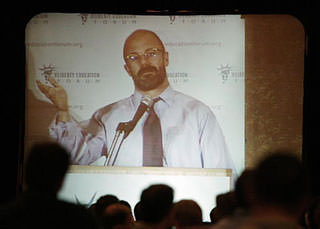
President Obama was crowned with a rainbow halo on the May 21 cover of Newsweek along with a story by Andrew Sullivan headlined “The First Gay President.” Yes, because if Bill Clinton was “the first black president,” then all other nonsense follows. Sullivan had stated in an earlier blog post that he had been “at a loss for words” and was moved to tears. In this Newsweek article, Sullivan wrote that “when I watched the interview, the tears came flooding down.” Later, on “The Chris Matthews Show,” Sullivan said he was at first “steeled” in case Obama disappointed gay people again: “And then I sat down and watched our president tell me that I am his equal. And I am no longer outside — I’m fully part of this family. And to hear the president who is in some ways a father figure speak to that — the tears came down like with many people in our families.”
Surfing such a tidal wave of pathos is a far better career move at this time than trying to swim against it, but the search for drier and firmer historical ground must continue in any case. And the notion that we, the people, are now grateful children of the paterfamilias in chief is breathtaking. As Glenn Greenwald noted in “Andrew Sullivan’s Father Figure” in Salon, “this has to be one of the creepiest episodes in American punditry in some time. … ” Greenwald wrote, “There was a time when I thought Sullivan’s serial blinding reverence for political leaders — Reagan and Thatcher, then Bush 43, now Obama — was the byproduct of some sort of transferred British need to be the subjects of a monarch.” Greenwald recognizes, however, that all too many Americans share similar reflexes. The wider political pathology here is authoritarianism, and not simply a garden variety of British royalism.
On the specific issue of gay marriage, Greenwald quoted Sullivan’s constant criticism of gay groups and activists in his blog posts for The Daily Beast. “We will win not by begging presidents to back us (they have no role in a matter involving state legislatures, governors and courts),” Sullivan wrote in 2011. And just one week before Sullivan called Obama a “father figure,” he questioned the motives of gay activists who dared to criticize the president’s opposition to marital equality. Sullivan wrote, “This desperate desire among some gays for some kind of affirmation from one man is a little sad,” but that was then. The next week in Newsweek, Sullivan wrote, “To have the president of the United States affirm my humanity — and the humanity of all gay Americans — was, unexpectedly, a watershed.” Greenwald wrote, “It’s dangerous, literally, to be willing to twist one’s views this way to glorify whatever the leader does at any moment.”
The personal sincerity of Sullivan is not my concern, and is not my subject here. Instead, my treatment of his ideas and public persona is frankly instrumental. To get from here to there — from the public persona of Sullivan to the public record of Obama — is necessary, but one of the central features of political “centrism” in our time is the outer ring of professional obfuscators that surrounds an inner circle of career politicians. Even that inner circle obscures the real inner sanctum of the corporate state, since Congress has now devolved into the front office of the ruling class. Sullivan does cross party lines since he has been (in Greenwald’s words) the “media hagiographer” of both Republican and Democratic presidents. Indeed, the bipolar politics of Sullivan are premised upon bipartisan business as usual, and his “centrist” ideology is a perfectly orthodox form of opportunism.
“I never understood the power of a president’s words until that day,” Sullivan continued on the same show. “This man saying, ‘I’m with you. I get it. You’re like me. I am like you. There is nothing between us.’ ” This is the trouble with reducing law, love and language to emoticons. There is, in fact, a Grand Canyon of legal and social discrimination between Obama’s marriage and my own marriage. After 33 years of life together, Larry Gross and I were married in a brief civil ceremony on Cesar Chavez Avenue in Los Angeles. The legal door to do so had opened briefly in California, but a state referendum (funded heavily by the Mormon church and backed by conservative Christians) shut it again soon after.
In the 21st century, this is the consequence of allowing the constitutional rights of citizens to be given or denied by mere majorities. If a doctrine of “original intent” rules out equality of kinship for same-sex couples because the 18th century founders had nothing of the kind in mind, then we must accept all the other crazy consequences, including owning slaves, forbidding interracial marriage and making women dependent on the votes of men. So far as equality of marriage and kinship are concerned, the United States is now a disunited patchwork of common sense and common nonsense, so that my marriage is null and void in more than 30 states. The “full faith and credit” clause of the U.S. Constitution (Article IV, Section 1) is consequently an open question only in regard to same-sex marriages, civil unions and domestic partnerships.
The career of a single journalist such as Sullivan cannot exist outside the wider political ecosystem of the corporate state. Under a “two party system,” the political opportunism of Sullivan is nearly contractual among whole battalions of pundits and journalists seeking to make the most of their opportunities. Just as corporate lobbyists seek access to whatever party is in power, likewise journalists must gauge their own “nonpartisan” status with great care. Bipartisan business as usual defines the bipolar politics of many journalists, and Sullivan is exemplary rather than singular in this regard. At moments when the civil and human rights of gay, lesbian, bisexual and transgendered people rise in the news cycle, Sullivan has become the go-to gay pundit for Newsweek cover stories, cable talk shows and even the satire shows of Stewart and Colbert.The role of intellectuals in preserving or challenging state power can be overestimated, not only because writers and academics are often victims of vanity, but also because the far right imagines the Ivy League, the Democratic Party and the mainstream media are all complicit in a Marxist conspiracy. The corporate consensus spanning those three institutions is, on the contrary, still fairly secure though showing signs of fracture.
The mainstream media invest Sullivan with the authority to be an unofficial ambassador from the internal colony of gay Americans, but only so long as he remains a reliable journalistic ambassador of the corporate state. Sullivan was not officially appointed to such positions by any class or party, but the positions are always open to talented entrepreneurs. Moreover, a publicity agent of American capital and culture must not be denied personal agency: After all, Sullivan gladly jumped over the pond from Britain, and he steps up into this public role of his own will. Unsurprisingly, the economy of opinion-making rewards him for doing so.
The objective elements of such a social contract should be emphasized, and not dozens of subjective speculations. The fact that Sullivan is openly gay is one aspect of his persona as a public intellectual, so in this same economy of opinions his views on politics and gay marriage have gained great currency. His functional role as an enterprising ideologist of “centrist” capitalism has earned him the megaphone of the mass media, and indeed his view of same-sex marriage differs in no important point from any argument for straightforward assimilation. Fewer people will be alienated from the existing political system, and more people will be delivered into stable domestic units of sexual and material consumption. All problems solved.
Sullivan had nothing to do with the radical founders of the American gay movement, including socialists such as Harry Hay, nor even with the more conservative gay members of Hay’s generation who dared to demand their share of assimilation. He never took their risks, he has no background in civil disobedience, and he has never taken a share in the long and unheralded haul of community organizing. Once others had paid the price of breaking barriers, he came along just in time to get hired at The New Republic as an open gay writer and editor. In Sullivan’s version, he was a brave dissenter against political conformism on the gay left, and especially in regard to the issue of gay marriage. The story is not so simple, however, and indeed not so personal.
The debate about civil unions, marriage and equality of kinship did not originate among a handful of journalists, but from a mass movement fighting for human rights and civil liberties. Sullivan entered that debate as a writer for a magazine of the political establishment, while other gay writers were still donating much unwaged labor to the struggling gay journals of that time. But writers of any sexual persuasion are never more than a fraction of the population. A much greater number of gay people created a movement for social justice, often risking jobs and social ostracism. All their labor proved decisive for the future of democracy, even though so many of their names and stories have been lost to history.
In The New Republic, Sullivan once wrote, “The denial of gay marriage to gay people is therefore not a minor issue. It is the entire issue.” When my book “The Queer Question: Essays on Desire and Democracy” was published in 1997, I responded: “As a socialist, I can’t agree, but I credit Sullivan with having more spine and spirit on this issue than many ‘progressives,’ both straight and gay, whose marriages to the Democratic Party have been a long martyrdom. Or worse, a long collaboration.”
That was then, and now Sullivan is a cheerleader for the Obama administration. On Jan. 23, the cover of Newsweek featured this article by Sullivan: “Why Are Obama’s Critics So Dumb?” The “centrism” of Obama is just common sense, in Sullivan’s view, and the same cover called out to Newsweek readers: “Niall Ferguson Ends Class Warfare.” When May 21 rolled around with another cover story on Obama by Sullivan, Newsweek readers were also offered “Colin Powell’s Rules to Live By.” The company Sullivan keeps in Newsweek is not under his editorial control, but that company is certainly a Who’s Who of corporate and imperial “centrism.”
Sullivan wrote in the July 1994 issue of Out magazine, “I choose liberalism’s approach, which says we don’t want to raise deep issues about identity, because once you do that, politics gets nasty. If it’s about identity, you wind up, at the extreme, with apartheid or Nazi Germany. Liberalism talks about raceless, sexless citizens, and tries to insure some form of equality among them. … ”
That neatly paraphrased a similar position taken by Arthur Schlesinger Jr., a former adviser to the Kennedy and other administrations, in his book of 1991, “The Disuniting of America: Reflections on a Multicultural Society.” The politics of identity is not an easy subject to summarize, especially as the very phrase “identity politics” was turned inside out over the years by a number of hostile critics. But those who first used the phrase include the African-American writer Barbara Smith and others who wrote and published the Combahee River Collective Statement of 1977. They did not propose a politics of separatism, the very tendency the liberal proponents of American assimilation warned against, but rather addressed “a politics that grew out of our objective material experiences as black women.”The fact that so many liberal and conservative intellectuals dismissed that distinction between separatism and solidarity tells us much about the limits of their own ideas, but very little about the politics of radical women of color. Unless each of us jumps out of our skins and into the ether, no one will escape some kind of all too human identity. That is our fate so long as we live on earth. But when the figures emerging from the national background were not white, or heterosexual, or middle class, many intellectuals (both liberal and conservative) grew alarmed. If the national project is explicitly capitalist, then it is quite true that some of the early proponents of identity politics were explicitly socialist. So the cause for alarm was not strictly academic, but already involved a collision between two kinds of class consciousness.
In the ideal republic of Schlesinger, Sullivan and Company, the ideal citizens would likewise strive to be raceless and sexless in the public sphere. As for class consciousness, a “centrist” corporate state would settle that question as well on the plane of ideological good will. When all such “accidental” elements are stripped away from a person, all that is left is a pure Platonic entity, a disembodied Logos. Of course, no such creature has ever existed on this earth, not even in the editorial offices of The New Republic, The Nation and The New York Times.
Sullivan, so far as I know, has never had any sympathy with the class-conscious politics of socialism. His version of the Christian social Gospel is influenced by his Catholic faith. The view that charity ought to replace class consciousness “on earth as in heaven” has real substance in the lives of the saints, but is otherwise one of the high-minded dodges of the ruling class. That view may be good religion, but remains bad politics. To be quite clear on this subject, the fraction of Christians who live out their lives and the Gospel message among the poor command respect. Dorothy Day of the Catholic Worker Movement was among their number. Long ago in my youth, I met her at an anarchist conference and argued with her after she had made a speech condemning usury, abortion and sodomy. We agreed only on the subject of usury.
Those who already live a kind of millennial witness against the powers of this world command respect but not political agreement, precisely because the communion of saints can never be a class-conscious policy of struggle against the corporate state. Sullivan is well aware that any social Gospel truly drawn from the Bible would spell condemnation to the practices of many conservative and fundamentalist Christians. Weaving a seamless garment from the words of Jesus Christ and the words of Adam Smith would be a long and laborious lie. Sullivan has not yet abased his talent to that level, while corporate politicians such as Mitt Romney and Barack Obama just declare a straightforward faith in both God and the free market. Republican politicians do so more often and more vehemently, but a Democrat in the White House now does so with more judgment of the moment and with more finesse.
Trying to pin down Sullivan as a liberal or a conservative — or as some “neo” hybrid of both — would be a trivial pursuit, and all the more so since the whole triangulating art of career Democrats such as Obama requires the definitional blur of moving targets. Indeed, Sullivan’s persona as a gay public intellectual is far less important than his function as a “centrist” mediator between a once insurgent social movement and the corporate state. If that is true in the case of Sullivan, it is much more powerfully true in the case of a black president who also risked nothing in the open mass struggles against racism. As a career Democrat in the White House, Obama has never addressed the racial fractures that still run through the foundation of this class system, nor the racial disparities that still color the whole system of legal prosecution and imprisonment in the United States.
Sullivan has been articulating his own brand of entrepreneurial politics over the years in his books and blog posts, and he was quite right to argue on “The Colbert Report” in January that Obama first ran for president as a political centrist. The talk of hope and change was just the kind of mood music many “progressives” had to hear before they could vote by rote, but centrism in foreign and domestic policies is what Obama promised and delivered. Of course, the meaning of the word “centrism” is peculiar in a political system dominated by a neo-fascist party so deeply indebted to Ronald Reagan and Milton Friedman, and by a neo-liberal party only distantly acquainted with Franklin Roosevelt and John Maynard Keynes.
Sullivan also told Stephen Colbert’s audience that Obama’s health care reform was largely borrowed from the Heritage Foundation, and that “the individual mandate came from the right.” I am glad to give credit where credit is due, and I agree with Sullivan’s summary of Obama’s health care plan. But Sullivan did not stop while he was still in the realm of reality. Sullivan claimed on the same show that Obama “passed universal health care” and “won the war in Afghanistan.” The studio audience cheered. The good doctors who formed the Physicians for a National Health Program are not cheering, and do not agree that the individual mandate plan deserves the name of universal health care. Obama’s health care plan would serve once again to lock millions of Americans into the embrace of private insurance companies, even as it would still leave millions of Americans uninsured. Rep. Dennis Kucinich of Ohio finally made his peace with that health care plan after getting a ride in Air Force One and before losing his seat in Congress. Whatever anyone thinks of Kucinich — and I think he is a deeply decent man — the Democratic Party is a party of structural inequality, and a handful of dissenters in Congress will never turn it into a party of social democracy.
Whatever the Supreme Court decides in reviewing the health care plan of the Obama administration, it is a model political lesson in the inability of career Democrats to fight for reforms on the solid ground of class-conscious politics. That reform was founded upon political quicksand, since Obama and his partisan colleagues never made the most elementary public case for social democracy in the provision of health care. The congressional hearings on health care reform were restricted by bipartisan design, and Dr. Margaret Flowers of Physicians for a National Health Program was among those arrested for daring to speak up for a fair debate.
As for the war in Afghanistan, Sullivan is more triumphalist than Obama’s own press secretary. All the other imperial invaders (including the Romans, the British and the Russians) finally beat a bloody retreat from Afghanistan, though Sullivan confidently declares victory — not on behalf of a nation or an administration, but on behalf of Obama. To be sure, the cloud of drones does not always make surgical strikes on terrorists, but otherwise scatters only the seeds of democracy from a benevolent distant land. Sullivan would have us believe the sun is still rising on the American Empire in the year 2012, but he has mistaken twilight for dawn. The sun was setting on the British Empire through the first half of the 20th century, and British voters gave social democracy a fair chance only after two world wars. So I will not dare predict how many decades this American imperial twilight may yet last, nor whether American voters will weather greater catastrophes before voting out this corporate regime.
Your support matters…Independent journalism is under threat and overshadowed by heavily funded mainstream media.
You can help level the playing field. Become a member.
Your tax-deductible contribution keeps us digging beneath the headlines to give you thought-provoking, investigative reporting and analysis that unearths what's really happening- without compromise.
Give today to support our courageous, independent journalists.


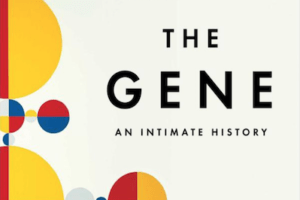
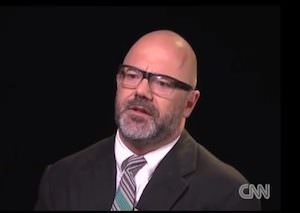
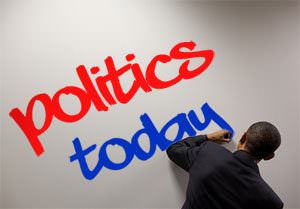
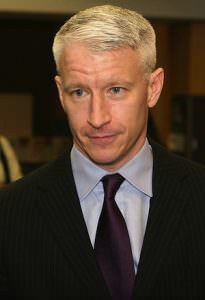
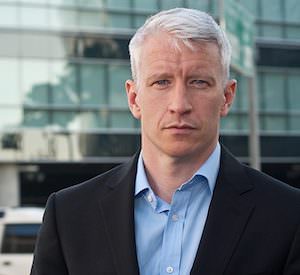


You need to be a supporter to comment.
There are currently no responses to this article.
Be the first to respond.